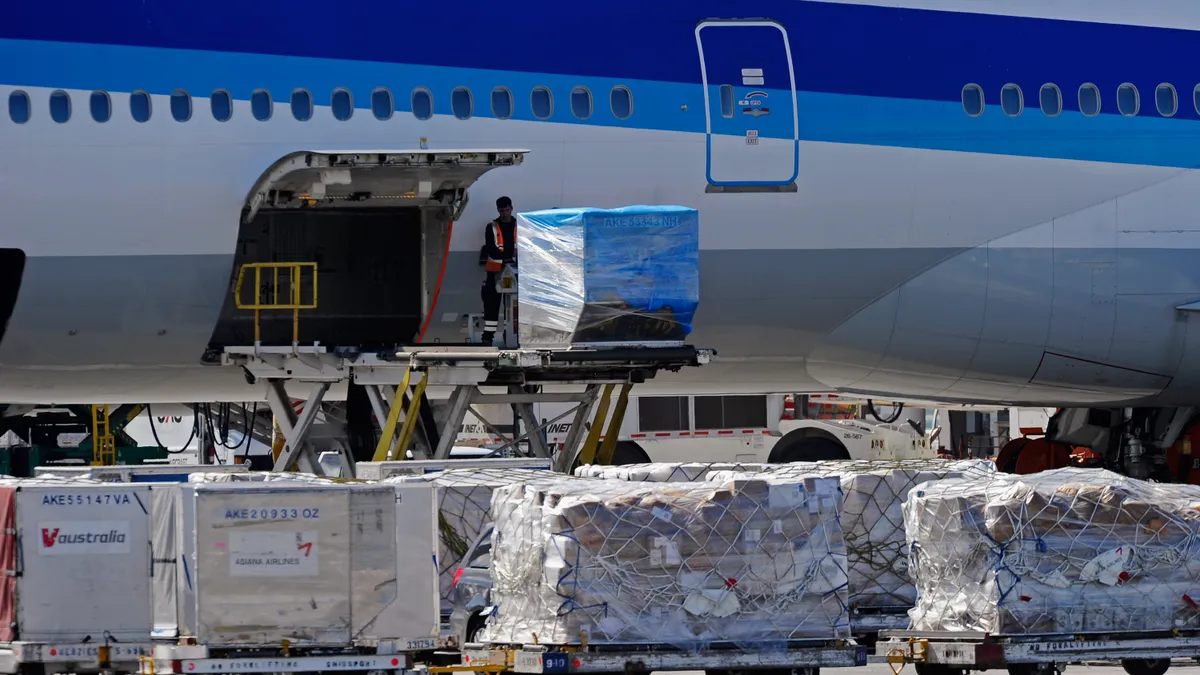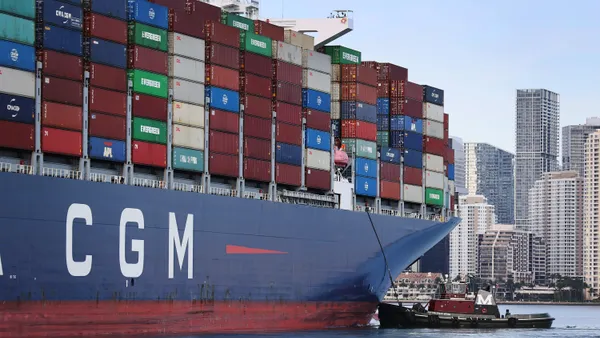Dive Brief:
- Air cargo carriers are implementing higher surcharges for flights operating in Europe and Asia as the price of jet fuel climbs and carriers avoid Russia and Ukraine's airspace.
- UPS increased surcharges Feb. 27 on shipments from "other major Asia Pacific origins" — excluding mainland China, Hong Kong and Macau — to 19 countries in Europe. On March 7, FedEx Express surcharges increased for certain international shipments, including some "moving between Europe and countries in all regions." Airlines have also introduced fuel surcharge hikes due to rapidly rising oil prices, according to Scan Global Logistics.
- With fuel being most air carriers' second-largest expense, they'll pass along the price increases, said Neel Jones Shah, Flexport's executive vice president and global head of airfreight. Airspace restrictions have also rendered some flights between Asia and Europe economically infeasible, reducing capacity and adding further cost pressure on shippers, Shah added.
Jet fuel cost jumps after Russia invades Ukraine
Dive Insight:
Air cargo shippers have endured an environment of elevated costs and limited capacity since the COVID-19 pandemic began, and the ripple effects of Russia's invasion of Ukraine are poised to sustain that trend.
"Rates have gone up and down but have consistently stayed about between two to three times where they have historically been pre-pandemic," Shah said. "I would say that prior to Ukraine, we were starting to get a little bit more stability."
Since the war began, air carriers have introduced a new wave of surcharges to recover added costs. Some are implementing a war surcharge "across the board on all lanes" to make up for added flying time, with others expected to follow, according to transportation and logistics company DSV.
Certain carriers are resorting to flight cancellations, with China, Hong Kong, Japan and Korea being the most affected, DB Schenker said in an update on the Ukraine crisis. On Monday, Japan-based Nippon Cargo Airlines suspended European flights through March 13 due to route restrictions.
"We are currently investigating air routes that do not pass through Russian airspace," the airline said on its website. "We are aiming to resume our European flights as soon as possible."
Rising fuel costs are adding further stress on airlines and shippers. Shah expects oil prices will rise in the next one to two months, leading to "significant surcharges in the $1.50 to $2 a kilo range, which is extremely high."
Shah said Flexport has been communicating to its customers the importance of diversifying their modes of transportation to absorb supply chain shocks — shipments between Asia and Europe may require ocean transport to the Middle East before getting on an airplane to its final destination, for example. But options overall are limited for air cargo shippers looking to mitigate the crisis' impact.
"I think it's going to get more challenging before it begins to get better, and it'll only get better when this conflict is over," Shah said.














